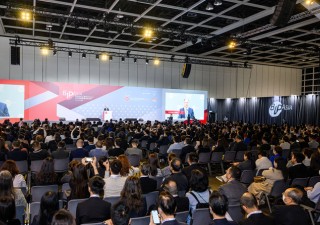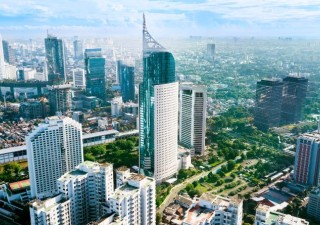Homegrown innovations are flourishing, she said, explaining that the future looks better, thanks to the 14th national 5-year plan which supports Hong Kong’s rise as an innovation and technology hub. Lam listed out Hong Kong’s strong IP protection regime, efficient IP commercialisation, a sophisticated services sector, sound legal and judicial systems, strong R&D capabilities, enthusiastic government support and seamless connections to the Greater Bay Area as reasons why Hong Kong is now ranked 7th globally on the criterion of IP right in the 2021 World Competitiveness Yearbook, published by the Institute for Management Development - a rise of 5 places compared to 2020.
Dr Shen Changyu, commissioner of the China National Intellectual Property Administration, agreed, explaining that innovation is the first driving force of development, and protecting IP rights means protecting innovation. Highlighting China’s own improvements, Shen pointed out that in the 2021 Global Innovation Index report released by the World Intellectual Property Organisation (WIPO), China’s global ranking has risen to a new historic high, and the Hong Kong-Shenzhen-Guangzhou region ranks second for science and technology.
The impact of the pandemic
“IP filings have proved resilient over the last 20 months, despite the challenges of the pandemic ” said Tang, director general of WIPO. Highlighting increases this year, he said trademark applications rose by over 17% to 17 million, with patent applications increasing by 1.6% to just under 3.3 million globally. “We are seeing a profound shift from tangible to intangible assets such as IP and data, and over the course of the last 50 years, the value of these intangible assets of companies listed on the S&P 500 has increased from 20% to close to 90% today” Tang said. Globally, intangible assets are now estimated to be worth over US$ 65 trillion, more than the value of the US and Chinese economies combined, he explained.
Tang went on to say that this change is sparking greater interest in IP valuation and IP financing and collateralization, and that IP, innovation and creativity are now more important to more countries.
Asia is now the main engine for global IP growth, Tang said. 10 years ago, Asia counted for five in 10 filings, and now counts for nearly seven out of 10 global applications.
Outlining some specific changes in Asia, Tang said that in 2020 Iran filed more than 540,000 trademarks, 100,000 more than the EU, and said that, for the first time, India is now one of the top five trademarking offices globally.
Similarly, Asia has seen a 26% growth in venture capital activity, compared to 6% growth globally. “The global IP community cannot proceed with business as usual, but must seize this opportunity to ensure that a balanced and effective IP ecosystem, one that works for everyone everywhere, is in place for all countries in the world.”
Going beyond
Tang explained that under their next 5-year plan, WIPO will reinforce their traditional areas of strength as a provider of global services, and as the forum for international rulemaking, but that they need to go beyond this.
“We need to work to ensure that IP works as a powerful catalyst for job creating, investments, business growth, economic development, and social vibrancy in all economies, especially in developing and less developed countries. We need to build a more inclusive IP ecosystem and serve sectors that may have been underserved before. We need to find new ways to connect to these groups to show how, as future innovators and developers, IP is relevant to them and the positive impact it can have on the causes they care most passionately about. We want to build a world where innovation and creativity anywhere is supported by IP for the good of everyone” Tang concluded.
The Business of IP Asia Forum is being held virtually in Hong Kong on December 2 and 3.
Darren Barton




-content_x-large.jpg)



